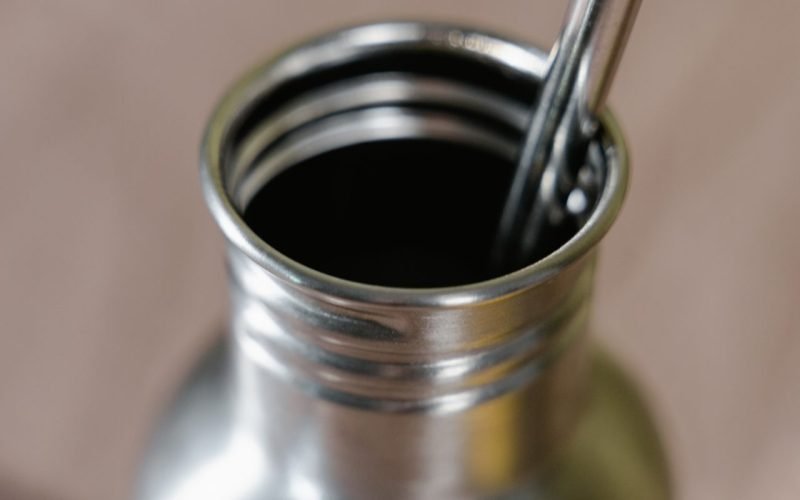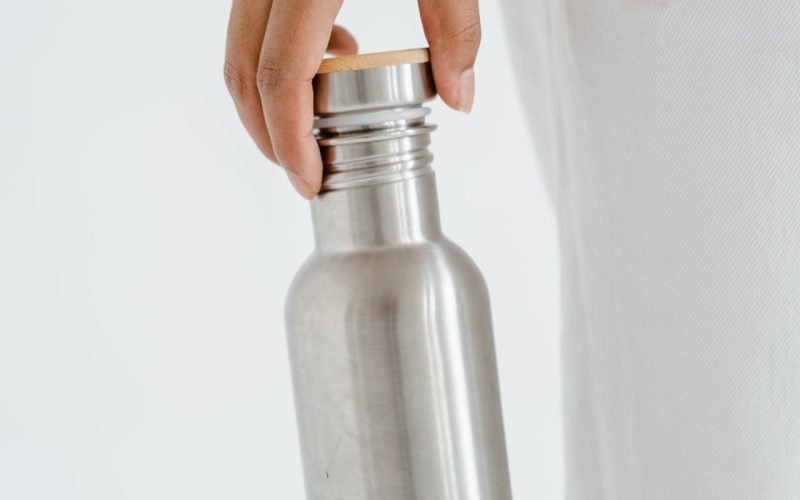
Hydration
Water makes up 45-75% of our body weight. The water you eat and drink through food and liquids follows a very detailed route to end up in your cells, of which it is a vital component.
The body uses water in every single one of its cells, organs, and tissues to help regulate its temperature and maintain other bodily functions.
The water you eat and drink through food and liquids follows a very detailed route to end up in your cells, of which it is a vital component.
Water functions as…

- Lubricant for joints and tissues:
- Acts as a lubricant for joints, enabling smooth movement and reducing friction between bones and tissues.
- Provides lubrication for various body tissues, such as mucous membranes, ensuring smooth function and preventing dryness.
- Shock absorber:
- Acts as a shock absorber, protecting vital organs and delicate tissues from external impacts and mechanical forces.
- Helps cushion and protect the brain and spinal cord by surrounding them with cerebrospinal fluid.
- Building material:
- Serves as a major component of cells, providing structural support and helping maintain cell shape.
- Present in various types of tissues, such as connective tissue, providing structural support to organs and maintaining their shape.
- Participates in the formation and maintenance of the extracellular matrix, which provides structural integrity to tissues.
- Solvent:
- Acts as a universal solvent, facilitating various biochemical reactions in the body.
- Dissolves and transports ions, minerals, sugars, amino acids, gases, and other substances, allowing them to interact and participate in metabolic processes.
- Helps in the breakdown of complex molecules during digestion by dissolving them into simpler forms for absorption.
Water helps to…

- Regulate body temperature:
- Enables thermoregulation through processes like sweating and evaporation, which help cool the body when it becomes overheated.
- Retains heat in cold environments, preventing rapid heat loss and maintaining optimal body temperature.
- Transport nutrients:
- Serves as a medium for the transportation of nutrients, oxygen, hormones, and other essential substances throughout the body via the bloodstream.
- Facilitates the distribution of these substances to various tissues and organs for energy production, growth, and maintenance.
- Remove waste products:
- Assists in the elimination of waste products, such as urea and excess ions, through urine formation.
- Dissolves waste substances, allowing them to be excreted efficiently through the kidneys and other excretory organs.
- Maintain fluid balance:
- Helps maintain fluid balance within cells and in the extracellular space, ensuring proper hydration and optimal cellular function.
- Regulates the movement of water between compartments to maintain appropriate fluid levels in various body tissues and organs.
- Maintaining blood pressure:
- Plays a crucial role in maintaining blood volume, which in turn helps regulate blood pressure.
- Adequate hydration is essential for maintaining blood volume and supporting proper cardiovascular function.
Intake and output of fluid

Output of fluid
It is critical to maintaining a balance between intake and output of fluid (a.k.a fluid balance) to ensure optimal cell function or performance readiness.
The most common ways in which the body loses fluid are:
- Urination: The process of excreting urine removes fluid from the body. The kidneys filter waste products and excess water from the bloodstream, producing urine that is subsequently eliminated.
- Sweating: Sweating helps regulate body temperature by cooling the body through evaporation. Sweat consists of water and electrolytes, resulting in fluid loss when it evaporates from the skin’s surface.
- Breathing: Every time you breathe, a small amount of water vapour is expelled from the lungs. This water loss is more noticeable during activities that involve increased respiration rates, such as exercise or intense physical exertion.
- Vomiting: When vomiting occurs, the body expels stomach contents, including fluid. This can result in significant fluid loss, potentially leading to dehydration if not adequately replenished.
- Diarrhoea: Excessive fluid loss can occur through diarrhoea, as the body eliminates watery stool. Various factors, such as infections, certain medications, or digestive disorders can cause diarrhoea.
- Bleeding: Blood loss through bleeding, whether from an injury, surgery, or menstruation, can lead to substantial fluid loss. The severity of the fluid loss depends on the extent and duration of the bleeding.
- Faeces: Normal bowel movements result in the elimination of waste products, including undigested food and water. Although the fluid loss through faeces is relatively tiny compared to other mechanisms, it does contribute to overall fluid balance.
Intake of fluid
The most common ways in which the body gains fluid are:
- Drinking: Consuming fluids, primarily water, is the most direct and common way to replenish the body’s fluid levels. Drinking water and other beverages, such as juices, tea, coffee, and milk, help maintain hydration.
- Eating: Many foods, especially fruits, and vegetables, contain a high water content. Consuming these foods contributes to fluid intake and helps maintain hydration. Soups, broths, and foods with high moisture content, such as yogurt or gelatin, also provide additional fluids.
- Intravenous (IV) Fluids: In certain medical situations, fluids may be administered directly into the bloodstream through an IV line. This method is used to quickly and efficiently replace fluid levels in cases of severe dehydration, surgical procedures, or other medical conditions.
- Metabolism: As a by-product of metabolism, the body generates water through cellular processes. This metabolic water production occurs during the breakdown of carbohydrates, fats, and proteins. While the amount of water produced through metabolism is relatively small compared to other sources, it contributes to overall fluid balance.
- Moisture in the air: In humid environments, the body can absorb a small amount of moisture from the air through the skin and respiratory system. However, the contribution of moisture from the air to overall fluid intake is minimal compared to other sources.
Hydration: Importance, Benefits, and Strategies for Optimal Fluid Intake

Hydration is not just about quenching your thirst; it is a fundamental aspect of overall health and well-being. Adequate fluid intake is crucial for optimal bodily functions and maintaining proper hydration levels. In this article, we explore the significance of hydration, the multitude of benefits it offers, signs of dehydration, optimal fluid intake strategies, choosing the right fluids, monitoring hydration status, and more. Let’s dive into the world of hydration and discover how it can positively impact our lives.
Why does hydration matter?

Water plays a vital role in the body, constituting 45 to 75% of body weight as a significant portion of cells, tissues, and bodily fluids. It is involved in various physiological processes, including nutrient absorption, temperature regulation, waste removal, and lubrication of joints and tissues. When the body lacks sufficient water, dehydration occurs, leading to detrimental effects on overall health and well-being.
Hydration is so important that the human body can only survive for a few days without any form of fluid intake. The exact duration varies from person to person and can range from approximately 3 to 5 days. However, it’s crucial to understand that dehydration sets in much earlier, and the effects of dehydration can be severe even before reaching the point of complete fluid deprivation.
Health benefits of adequate hydration

Proper hydration is essential for reaping the numerous health benefits it offers. From improved physical performance and cognitive function to supporting digestive health and overall well-being, staying adequately hydrated plays a critical role in optimizing various aspects of health such as:
- Improved Physical Performance: Proper hydration plays a significant role in enhancing physical performance and athletic abilities. When the body is adequately hydrated, it maintains optimal muscle function, allowing for improved strength, power, and endurance during exercise or sports activities.
- Enhanced Endurance: During prolonged physical activity, the body loses fluids through sweating. Dehydration can significantly impact endurance by reducing blood volume, increasing heart rate, and impairing thermoregulation. By staying properly hydrated, athletes can maintain adequate blood flow to working muscles, delay fatigue, and improve overall endurance.
- Optimal Muscle Function: Water is essential for muscle function and flexibility. Dehydration can lead to muscle cramps, weakness, and decreased range of motion. Proper hydration ensures adequate electrolyte balance, which is crucial for normal muscle contractions and for preventing muscle-related injuries.
- Cognitive Function and Mental Performance: Hydration has a direct impact on cognitive function and mental performance. The brain requires proper hydration to function optimally, and even mild dehydration can impair various aspects of cognitive performance.
- Focus and Concentration: Dehydration can lead to decreased focus, concentration, and memory recall. Research suggests that staying adequately hydrated improves cognitive abilities, including attention span, information processing, and mental clarity.
- Mood and Emotional Well-being: Proper hydration can positively influence mood and emotional well-being. Studies have shown that dehydration can contribute to increased feelings of fatigue, anxiety, and irritability. By maintaining hydration, individuals may experience improved mood and overall emotional stability.
- Digestive Health: Hydration is closely linked to maintaining a healthy digestive system. Sufficient water intake supports optimal digestion and regular bowel movements, promoting overall digestive health.
- Nutrient Absorption: Water plays a vital role in breaking down and absorbing nutrients from food. Proper hydration enhances the absorption and transportation of nutrients within the digestive system, ensuring the body receives the necessary vitamins, minerals, and other essential components for optimal functioning.
- Prevention of Constipation: Inadequate hydration is a common cause of constipation. When the body lacks sufficient water, the colon absorbs water from the stool, leading to hardened and difficult-to-pass faeces. By staying hydrated, individuals can prevent constipation, promote regular bowel movements, and maintain a healthy digestive tract.
- Detoxification: Water is essential for proper detoxification processes in the body. Adequate hydration supports kidney function, enabling the filtration and elimination of waste products and toxins. By maintaining hydration, individuals can support the body’s natural detoxification mechanisms.
In addition to these specific benefits, proper hydration also contributes to overall health and well-being in various other ways. It supports the maintenance of healthy skin by keeping it hydrated, supple, and less prone to dryness or wrinkles. Adequate hydration also helps regulate body temperature, as water acts as a coolant through sweating and evaporation. Moreover, staying hydrated aids in the efficient transport of nutrients and oxygen to cells and tissues, supporting overall cellular function and vitality.
What is fluid balance and why is it that important?

Fluid balance refers to the state in which the body’s intake and output of fluids are balanced, ensuring that the body has an adequate amount of fluids to function optimally. It involves maintaining the equilibrium between fluid intake (via consumption of beverages and foods) and fluid output (through various bodily processes such as urine, sweat, respiration, vomiting, bleeding, and faeces).
Fluid balance is crucial for the proper functioning of the body for several reasons:
- Cell Function: Adequate fluid balance is essential for optimal cellular function. Cells require a specific balance of fluids and electrolytes to carry out their metabolic processes efficiently. Proper fluid balance ensures the appropriate exchange of nutrients, electrolytes, and waste products between cells and their surroundings.
- Temperature Regulation: Fluid balance plays a vital role in maintaining body temperature within a narrow range. When the body is exposed to high temperatures or engages in physical activity, it releases heat through sweating. Sweating helps to cool the body as the sweat evaporates from the skin’s surface. Maintaining fluid balance ensures that the body has sufficient fluids to produce sweat and regulate body temperature effectively.
- Blood Volume and Blood Pressure: Fluid balance is closely linked to maintaining adequate blood volume and blood pressure. When the body is dehydrated, blood volume decreases, which can lead to a decrease in blood pressure. This can strain the cardiovascular system and potentially impair organ function. On the other hand, excessive fluid intake can increase blood volume, potentially leading to increased blood pressure. Maintaining fluid balance helps ensure proper blood volume and blood pressure regulation, supporting cardiovascular health.
- Kidney Function and Waste Removal: The kidneys play a crucial role in filtering waste products and excess fluids from the blood, which are then excreted as urine. Adequate fluid balance is necessary for optimal kidney function and the efficient removal of waste products. Insufficient fluid intake can lead to concentrated urine and the formation of kidney stones, while excessive fluid intake can put a strain on the kidneys. Maintaining fluid balance supports proper kidney function and waste removal.
- Electrolyte Balance: Fluid balance is closely tied to maintaining the appropriate levels of electrolytes (such as sodium, potassium, and chloride) in the body. Electrolytes are essential for various bodily functions, including nerve conduction, muscle contraction, and maintaining fluid balance within cells. Proper fluid balance helps ensure the optimal distribution and concentration of electrolytes throughout the body.
- Digestive Function: Adequate fluid balance supports proper digestion and nutrient absorption. Sufficient fluids in the gastrointestinal tract help break down food and facilitate the absorption of nutrients. Insufficient hydration can lead to digestive issues such as constipation, while proper fluid balance promotes regular bowel movements and overall digestive health.
A negative fluid balance can lead to dehydration, understood as the loss of more fluids than consumed to the degree that the body’s basic functions are negatively affected. Dehydration progresses through different stages, each with its own set of symptoms and health risks. These stages include mild dehydration, moderate dehydration, and severe dehydration. As dehydration worsens, the body’s ability to function properly is compromised, leading to an increased risk of organ failure and death.
Recognizing the signs of dehydration is crucial for prompt intervention. Thirst is a physiological mechanism that signals the need for fluid intake. However, relying solely on thirst may not always be sufficient to maintain optimal hydration levels. It’s recommended to drink fluids regularly, even before feeling thirsty, to prevent dehydration.
- Common indicators of mild dehydration (typically a loss of 2% to 3% of body weight in fluid) include thirst, dry or sticky mouth, not peeing very much, dark yellow pee, dry and cool skin, headache, and muscle cramps.
- Common indicators of severe dehydration (typically more than 5% loss of body weight in fluid) include not peeing or having very dark yellow pee, very dry skin, feeling dizzy, rapid heartbeat, rapid breathing, sunken eyes, sleepiness, lack of energy, confusion or irritability, and fainting.
How do I balance fluids?

There is no full consensus on general recommendations for fluid intake but both, the Irish Heart Foundation and the Association of UK Dietitians recommend that women should drink about 1.6 litres and men about 2 litres of water per day. That’s about eight glasses of 200ml each for a woman, and 10 glasses of 200ml each for a man. However, an individual’s specific daily fluid intake requirements vary based on factors such as age, sex, activity level, climate, and overall health.
Below are some of the strategies I would use to balance fluids:
1. Keep track of your fluid intake throughout the day. This can be done by using a water bottle or a hydration tracking app. By being aware of how much you are drinking, you can ensure you are meeting your fluid needs.
2. Adapt fluid intake based on one of the strategies below:
- Balance fluids based on food consumption: Simply consume 1L of fluid per every 1000 calories you consume.
- Balance fluids based on weight balance: Consume 31.56 millilitres per kilo/bodyweight (14,3 millilitres per pound/bodyweight) plus ~1254 millilitres per kilo (~568 millilitres per pound) lost during activity.
- Balance fluid based on body weight and activity levels: Consume 31.56 millilitres per kilo/bodyweight (14,3 millilitres per pound/bodyweight) plus ~250 millilitres per 30 minutes of exercise.
3. Drink water at regular intervals throughout the day, rather than waiting until you are thirsty. Sip on water consistently to prevent dehydration.
4. Avoid distilled water since it has a complete lack of electrolytes and can lead to dehydration.
5. Consider Electrolyte Balance: Electrolytes, such as sodium, potassium, and chloride, play a crucial role in fluid balance and hydration. When engaging in intense physical activity or sweating excessively, consider beverages that provide electrolytes to help replenish what is lost. Sports drinks or electrolyte-enhanced water can be beneficial in these situations.
6. Consume water slowly to avoid excessive increases in water excretion before it can find its way into the cell.
7. Consider fluid-rich foods that can contribute to your overall fluid intake. Fruits and vegetables like watermelon, cucumbers, oranges, and strawberries are examples of hydrating foods that can help balance fluids.
8. Read labels and Ingredients when choosing packaged beverages to understand their composition. Avoid beverages high in added sugars, artificial sweeteners, or excessive amounts of sodium. Look for drinks that are primarily water-based and free from unnecessary additives.
9. Limit diuretic beverages: Diuretic beverages, such as caffeinated drinks and alcohol, can increase urine production and potentially disrupt the fluid balance. While moderate consumption of these beverages can still contribute to overall hydration, it’s important to be mindful of their potential diuretic effects and balance them with water intake.
10. Be mindful of environmental factors: Environmental conditions, such as heat and humidity, can increase fluid loss through sweat. In such situations, it’s important to increase your fluid intake to counteract the increased loss and maintain fluid balance.
11. Pay attention to your body’s thirst cues and respond by drinking water. However, it’s important to note that thirst may not always be an accurate indicator of fluid needs, especially in certain populations like older adults. Therefore, it’s advisable to maintain regular fluid intake even if you don’t feel thirsty.
12. Monitor urine colour and aim for a pale yellow colour, similar to the colour of lemonade. Darker urine may indicate dehydration, while very light or clear urine may suggest excessive fluid intake.
Conclusion

Proper hydration is essential for maintaining optimal health and well-being. By understanding the importance of hydration, recognizing the signs of dehydration, implementing strategies for fluid intake, and monitoring hydration status, individuals can ensure they remain adequately hydrated. Remember, staying hydrated is not just a matter of quenching your thirst; it’s a vital aspect of overall health, performance, and vitality.
Recommended reading
- 1
- 2
Recommended reading
- 1
- 2
Additional Resources
Feeling in control of your health
If you are interested in improving your health and wellness, check out other resources such as Our Blog, Free Resources and/or join our private Body-Mind Transformation Secrets Community on Facebook, and The 360 Transformation Blueprint Podcast on Spotify and go on an even deeper dive with me to uncover how to succeed in your health and wellness goals.
You may also be interested in our Sleep Secrets Cheat Sheet. It is a great resource with strategies to fix and optimize your sleep which is crucial to succeeding in your health and wellness goals.








